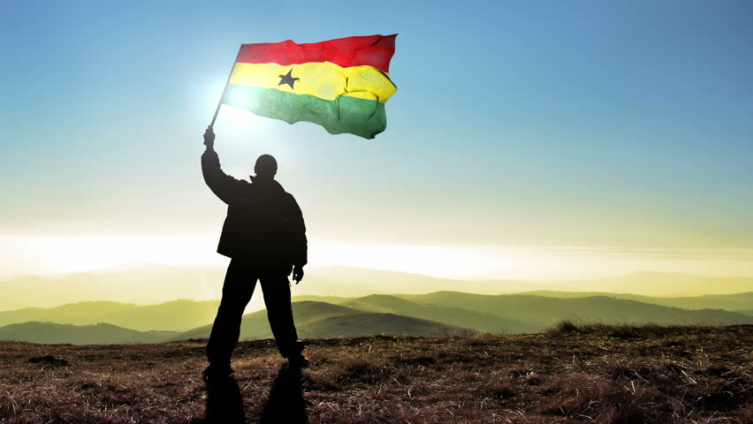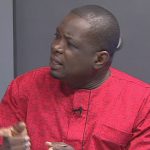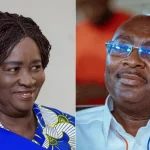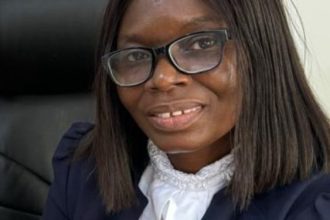Former President John Dramani Mahama has promised to review the constitutional provisions on dual citizenship to allow Ghanaians in that category to become Members of Parliament (MPs) and hold public office.
Mr Mahama said he would do that after the 2024 presidential election if elected.
According to him, the law that prevented Ghanaians with double citizenship from becoming MPs or holding public office must not be allowed to remain in the statute book.
“But I want to assure the people of Ghana and James Gyakye Quayson, who is our Member of Parliament for Assin North, that when the NDC comes to power, we will clarify that constitutional provision that compels them to give up their foreign citizenship before they contest elections,” Mr Mahama told National Democratic Congress (NDC) delegates in Tamale before the May 13, 2023, presidential and parliamentary primaries.
“A country’s human resource is its best resource. We happen to have three million of our citizens abroad. They have acquired skills and different talents.
‘’Why must we have a law that bars them when we have a dual citizenship law?
“We will clarify it so that they can come to contest for parliamentary seats and hold public office in Ghana.
“They don’t have to give up their other citizenship to be able to hold office,” President Mahama added.
Mr Mahama’s position on dual citizenship of Ghanaians and the disqualification of such a category of Ghanaians from becoming MPs of Ghana or holding public office was later espoused by the Progressive People’s Party (PPP).
The party’s Regional Chairman for Ashanti, Mr Simon Quansah, presenting his party’s position, said that restrictions placed on dual-citizenship Ghanaians stalled national development because it prevented Ghanaians with skills from holding public office.
“We want our laws on dual citizenship and public office amended to allow all Ghanaians with dual citizenship to be given full citizenship rights to serve in all public sectors – to be MPs or president.
“We are asking that this can be changed to allow all Ghanaians, dual citizens or not, in all public service positions,” Mr Quansah added.
Commenting on Mr Mahama’s proposal, a former Deputy Attorney General, Mr Joseph Kpemka, described the proposal as moot.
He said it was a moot point because a process had commenced in the Ghanaian Parliament to amend the dual citizenship law.
“I think what I will say is a moot idea because the process has already been triggered.
“Probably, by the time he will contest for president again, the law will have been amended and there will be no need for us to talk about it,” he said.
According to Mr Kpemka, that law was no longer necessary.
President Mahama’s proposal, the PPP’s endorsement of it and the private member’s bill in Parliament to amend the dual citizenship law — have raised many questions that border on Ghana’s sovereignty and national security.
What is nationality? What is citizenship? What is dual citizenship?
What was the purpose of the amendment of Article 8 to allow Ghanaians to acquire double citizenship?
Why are dual-citizenship Ghanaians prohibited under the law from becoming MPs or holding public office?
According to Wikipedia, ‘’nationality describes the relationship of an individual to the State under international law.”
It states that “citizenship is the domestic relationship of an individual within the nation”.
A dual citizen is one who is a national of one country of his/her birth or otherwise and has acquired citizenship of another country.
Ghanaians were permitted to be citizens of Ghana and, at the same time, acquire citizenship in another country.
That was made possible under the Dual Citizenship Scheme of the Ghana Citizen Act 2000 that came into force in 2002 under the Citizen Act 2002.
The intention then was to increase the immigration of skilled labour from Ghana to foreign countries.
Indeed, it was its economic benefits to Ghana that underlined the approval of the bill in the Ghanaian Parliament.
Before then, Ghanaians living abroad had demanded dual citizenship status to enable them to live and work abroad as dual citizens.
Has the opportunity given by amendment of the Constitution to allow Ghanaians to acquire additional citizenship outlived its purpose?
It has not. Ghanaians who have acquired dual citizenship are still benefiting by working and earning money part of which is sent home to their dependents.
The Ghana Citizen Act 2002 and the prohibitions attached to it, I believe, were founded on sound political, economic and legal principles.
Collins-dictionary.com defines national sovereignty as “the principle that each country has independent sovereignty over its domestic policies and arrangements.
It is “the absolute capacity and power of a sovereign nation to independently govern, free from external interference”.
Interference by another country, in any form or by any means, direct or indirect, can affect a nation’s ability to govern itself.
A dual citizen or a person with two citizenship is a person of one country who has acquired citizenship of another country. He or she has, thereby, sworn allegiance to both countries.
In principle, that person is not a complete or whole citizen of the two countries.
According to Wikipedia, allegiance, “is a duty of fidelity said to be owed or freely committed by the people, subjects or citizens to their State or sovereign”.
“It is an oath of fidelity taken by all persons holding important public office, and as a condition of naturalisation”.
“An oath of allegiance is an oath whereby a subject or citizen acknowledges a duty of allegiance and swears loyalty to a monarch or a country.” (Wikipedia)
Swearing an oath of allegiance is not a small or a big joke.
It is a matter of swearing that a person is prepared to do what a country lawfully demands of its citizens.
In the matter of national sovereignty and security, a dual citizenship holder is like a broken bottle or jar.
A broken bottle or jar can no longer hold water intact.
The water in a bottle or jar scatters into many parts, when the container is broken.
Therefore, when it comes to national sovereignty and security, the best interest of the country must be paramount.
That best interest is national security, national sovereignty and the ability of a nation to rule itself by itself without any foreign interference.
Dual citizenship can constitute serious interference from outside when a dual-citizenship person is allowed to hold public office as a parliamentarian, vice-president, president, chief justice, inspector general of police, minister of state, and so on.
In terms of philosophical and mathematical principles, a dual citizen is not an absolute number, “one”. It is a number with an attachment that minimises the attributes of the holder.
In the Ghanaian Parliament, the Constitution demands that more than half of the 275 MPs, present and voting, must vote for legislation to get approved.
The vote of a dual citizen in Parliament would amount to what?
His or her vote would amount to half. That is half allegiance and loyalty to Ghana. The other half belongs to the country to which that person owes allegiance.
He or she must bring the other half to Ghana. That is why a person must renounce his or her dual citizenship to become an MP.
In deciding to amend the dual citizenship law, therefore, care must be taken to ensure that Ghanaians do not throw the baby, the tub and the dirty water away.
Opportunistic considerations must be avoided.
A desire to amend the Constitution must be for the sake of amendment; not for opportunistic gains.
Above all else, what has a Ghanaian, who resides abroad and offers to come home and become an MP or hold public office, to do with dual citizenship in Ghana?
It is proper, therefore, for a dual-citizenship Ghanaian to renounce his or her other citizenship, if he or she desires to serve the Motherland fully and faithfully as an MP or a public officer.
















